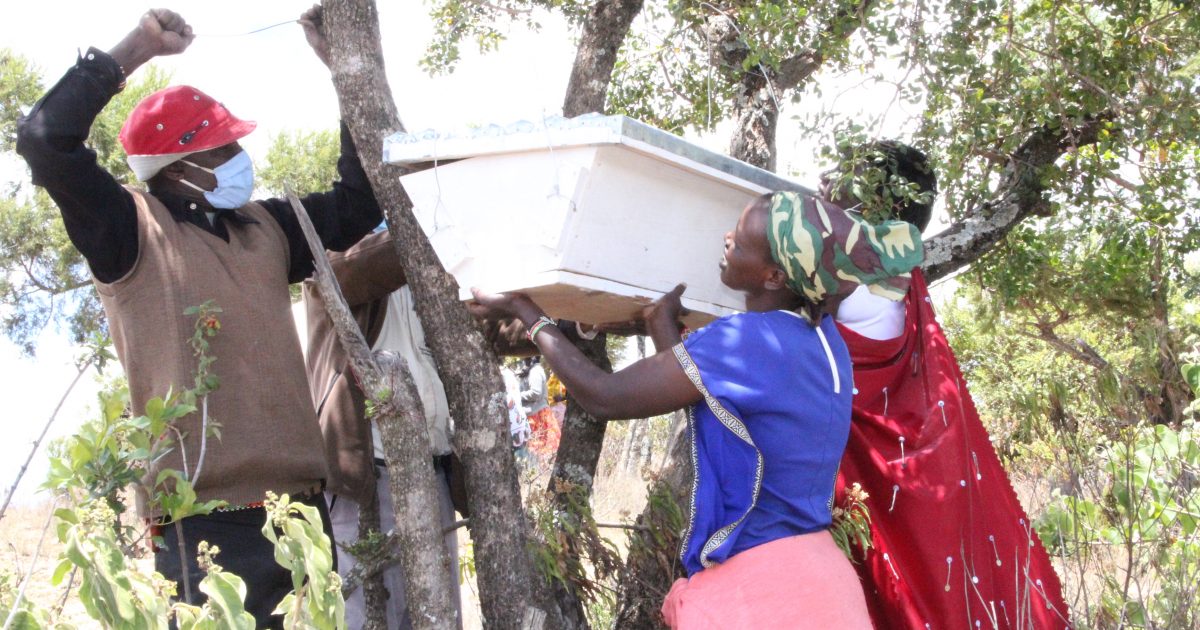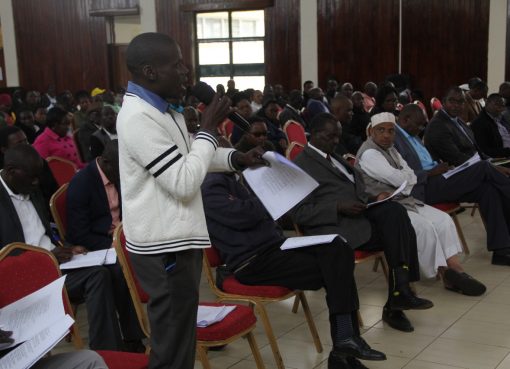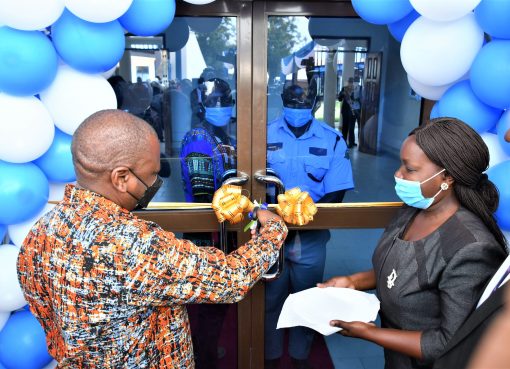Pastoralist communities in drought ravaged areas have been challenged to embrace alternative sources of livelihood support to supplement livestock keeping.
Regional Pastoralist Resilience Project (R.P.L) Laikipia Coordinator, Gilbert Mboroki while distributing beehives to a group of pastoralist communities in Ing’wesi, at Mukogondo, Laikipia North told the communities not to over rely on livestock rearing alone but venture in other income generating activities.
He expressed fears that livestock farmers incurred losses during dry spells due to lack of pasture and water and it was time they diversified to other support mechanisms.

“Bee keeping is a livelihood support for the people around who are pastoralists because they keep other type of livestock like goats, sheep and camels. “Their lives will be improved since when there is drought and their livestock numbers reduce, they will be having an alternative source of income from beekeeping which they have appreciated,” Mboroki said.
The coordinator said that, at first it was hard to make them believe they could get money from beekeeping because they thought bee keeping was for the poorest members of the community.
“After training them for one year and half on alternative livelihood support, they have believed they can do bee keeping and get money, they will not despise those who engage in the activity again because of the economic part of it,” he said.
Mboroki hopes that after issuing them with bee hives their lives will change and they will not only depend on livestock to generate income.
“We hope that they will also be processing the honey and upgrading it for the market, with that the community is promoted and this will benefit those who are not members of this community too,” he added.
Benson Kataka, who is a member of the pastoralist community and chairperson of the group said that his community should consider diversifying to other income generating activities.
“We believed that bee keeping was for the poor members of the community but resilience came in and trained us the benefit of it and we started to appreciate in the sense that bee keeping also get income just like other livestock,” Kataka said, adding, “a matter of fact, bee keeping is more than livestock because it is easy to keep and no challenges of theft the way our animals are stolen.”
Teresiah Karamshu encouraged women to join them in bee keeping and stop depending on their spouses alone.
“I am one of this pastoral group, when I sell honey, I will be able to get school fees to my children and buy other households essentials, I will no longer depend on livestock because it is for men and most of the time we can’t sell,” Karamshu said.
Additionally, Agnes Kirobi who is a member of the group said that they will use honey wax to make products like shoe polish and soaps.
“We will get many benefits from honey and we intend to make soaps, shoe polish and other products that come from honey and more importantly we are now independent, not relying on our husbands to provide for us every time,” she said.
Mboroki was accompanied by Laikipia Livestock Director, Pius Butichi who promised the residents that he will help them to market and sell their honey products.
“There is a ready market, and we emphasize that everyone gets in honey production, we have the potential in bee keeping,” Butishi said.
Other projects done by resilience in Laikipia County are livestock vaccination, water dams construction in Doldol, water pans in Sossian and livestock restocking to drought stricken pastoralists.
By Muturi Mwangi





